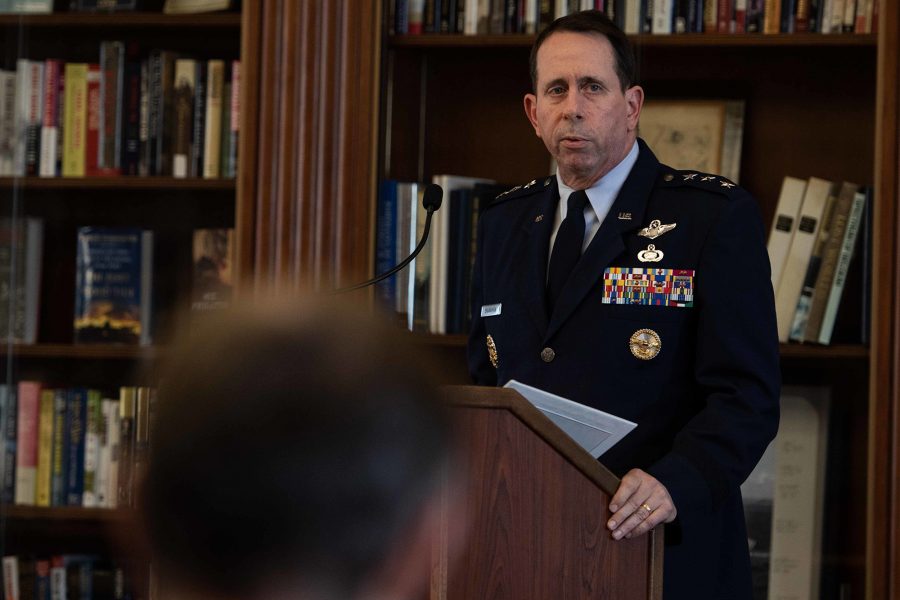NATO allies need to join the US in developing artificial intelligence capabilities to gain an upper hand over China and Russia, which are working together on AI in ways that threaten shared Western values, the military’s top AI expert said Jan. 15.
Lt. Gen. Jack Shanahan, the director of the Pentagon’s Joint Artificial Intelligence Center, said that while the US is moving forward on AI as a military initiative, some NATO allies are progressing slower because ethical debates have “immobilized” some countries.
“Success with AI adoption requires a multi-generational commitment with the right combination of tactical urgency and strategic patience,” Shanahan told reporters on a call from Brussels, where he is meeting with NATO officials. “The US, along with our NATO allies, will face difficult decisions regarding the future of legacy systems and platforms in an era where technological innovations are transforming every aspect of the human experience.”
The threats are clear from China and Russia in the realm of AI, Shanahan said. For example, China is using it for censorship, stifling freedom of expression, facilitating the sale of AI-enabled weapons, “and lowering the barrier of entry of potential adversaries and potentially placing this technology in the hands of non-state actors.” Most concerning is China forcing its companies like Huawei to cooperate with Chinese Communist Party intelligence, “no matter where the company operates,” he said.
Russia has shown a “greater willingness to disregard international ethical norms” and develop systems that could destabilize international security, he added. That includes using automation and machine learning to power global disinformation campaigns as well as lethal weapons systems, Shanahan said.
Much of AI software comes from commercial industry and is easily exported, so “we have serious concerns about nonstate actors and their ability to grab these capabilities from the open-source market,” Shanahan said. While other technologies are developed by the military and then spun off in the commercial world, AI is moving in the opposite direction.
“When you do that, those technologies will be available to almost anyone with not a lot of effort to go get them,” he said. “That risks a future which destabilizes the international order in the digital age, so I will tell you that we’re looking carefully about how we would prevent proliferation of those capabilities. But I will not pretend that we can do that easily or immediately.”
One example Shanahan touched on is the expansion of “deepfake” technology, where AI and machine learning can produce video that looks and sounds realistic enough to convincingly portray a world leader. Deepfakes could worsen the “corrosive influence” of disinformation campaigns in political elections, such as Russia’s attempt to influence the 2016 US presidential race, Shanahan argued.
“What if a senior leader were to come on and announce that the nation is at war, but it was a deepfake?” he said. “Those are areas that are of increasing concern across all of society, not just the United States military, but they could be used anywhere across the world. They’re not hard to get access to either.”
Authoritarian regimes can also deploy AI for ubiquitous social surveillance and facial recognition, he added.
Shanahan believes these issues should compel the US and NATO to “vigorously promote AI for our shared values.”
“The deliberate actions we take in the coming years with responsible AI adoption will ensure our militaries keep pace with digital modernization and remain interoperable in the most complex and consequential missions, so that we can continue to rely on the security architecture that has preserved peace, prosperity, and stability in Europe and beyond for decades,” he said.
